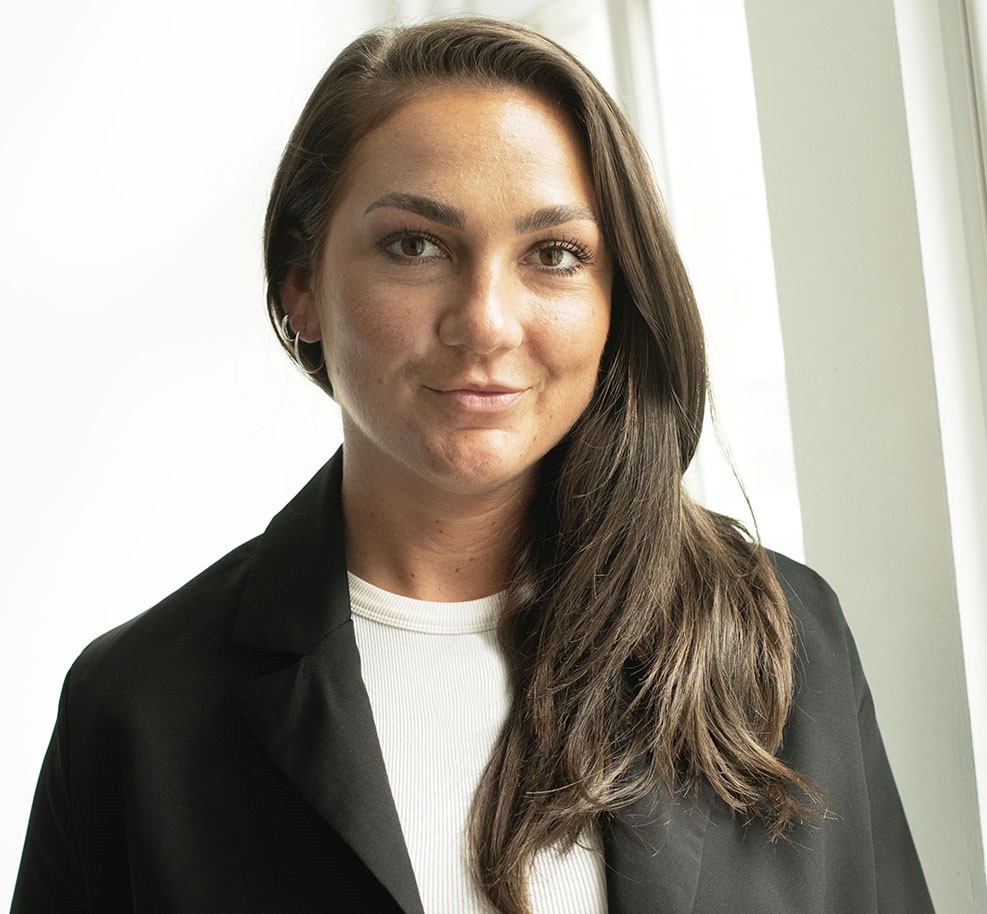A review of women in renewables: why the shortage and removing the barriers
Notable gender gaps persist in the energy sector, which has been historically male-dominated. Women lag behind men in leadership and technical jobs in the renewable energy sector and represent just one-third of the renewable energy workforce worldwide.
Kate Friar, Recruitment Consultant at Eleven, spoke to clients and candidates working in the sector and delved deep into whether businesses are aware of the imbalance, why there’s still a gap and what opportunity this gives half the population, and the businesses in the sector?
Introduction
Eleven have been recruiting since 1998. During that time, we’ve found the very best global talent for global energy majors, startup alternative technology businesses and, in the past five years, global renewable energy businesses.
During this recruitment we have seen a wave of educated, skilled women enter the job market as the role of women in the workplace, over the last 35 years, changes. Equally, we have worked with large businesses and growing startups who have been expressing a strong desire for us to help them attract a more diverse pool of talent to enhance their teams.
 Dominic Kendal, Eleven’s Managing Director states, “Once upon a time our clients were hoping to tick the “female quota” box to adhere to diversity targets. Thankfully today we’re at a place in 2024 where this isn’t a box ticking exercise. Today our clients and partners in the renewable energy industry are seeing the value and importance of having a mixed workforce.”
Dominic Kendal, Eleven’s Managing Director states, “Once upon a time our clients were hoping to tick the “female quota” box to adhere to diversity targets. Thankfully today we’re at a place in 2024 where this isn’t a box ticking exercise. Today our clients and partners in the renewable energy industry are seeing the value and importance of having a mixed workforce.”
However, the balance is still very unequal. Notable gender gaps persist in the energy sector, which has been historically male-dominated. Women lag behind men in leadership and technical jobs in the renewable energy sector and represent just one-third of the renewable energy workforce worldwide.
According to IRENA’s World Energy Transitions Outlook 2022 report, by 2030 there will be 139 million jobs in the energy sector worldwide. Of those jobs, 38.2 million will be in renewable energy and 74.2 million in other energy transition-related sectors.
So, with a booming industry coming in the next few years what does the landscape look like and how can more women get involved?
Eleven spoke to clients and candidates working in the sector and delved deep into whether businesses are aware of the imbalance, why there’s still a gap and what opportunity this gives half the population, and the businesses in the sector?
Why is there still such a large gap in the industry?

As of 2022, for every 1000 people, 504 were registered born as male and 496 registered females (Source: Institut National d’Etudes Démographiques (INED)). So, with roughly half the population being born female, it’s staggering to think the renewable energy market employs about 32% women, compared to 22% in the energy sector overall.
According to The Center for American Progress, women in the U.S. only hold 25 seats on the boards of the world’s 200 largest utilities, representing 16% of board members. Similarly, in the technology sector, a 2020 report from the Global Accelerator Learning Initiative found that 63% of energy sector startups surveyed, were led by all-male teams. While women’s leadership representation in clean energy has grown, gender parity remains elusive.
 “Indeed speaking to one of our clients, they’re looking to increase their female workforce. It’s timely as Spain’s Equal Representation Law is designed to boost the share of women in politics and business launched a day before International Women’s Day on 7th March. Imposing a 40% minimum female representation on boards of directors of big companies and governing boards of professional associations, it looks to tackle the imbalance,” says Kate Friar, Consultant at Eleven.
“Indeed speaking to one of our clients, they’re looking to increase their female workforce. It’s timely as Spain’s Equal Representation Law is designed to boost the share of women in politics and business launched a day before International Women’s Day on 7th March. Imposing a 40% minimum female representation on boards of directors of big companies and governing boards of professional associations, it looks to tackle the imbalance,” says Kate Friar, Consultant at Eleven.
A lack of specific qualifications, diversity barriers and public perceptions are just three of the numerous hurdles women have to overcome in their journey to a career in renewables. In pursuit of an understanding of the reasons underlying the low female representation within the sector, Eleven actively participated in discussions with our pool of candidates and clients. A LinkedIn poll also surveyed our wider connections, of which the data is included below.
- Gender roles and unconscious bias
Our perceptions of gender roles are intrinsically shaped by cultural and social norms that influence many of the fundamental decisions we, in 2024, make. When at school there are still prevailing views of girls’ abilities and often the arts and languages are chosen over maths and science, either through direction or unconscious bias from those teaching.
The enduring impact of gender roles also continue as these girls reach earning age. A lack of access to career information and relevant networks for women, shape hiring practices, as well as the degree to which women have access to such employment entry points as internships and apprenticeships.
A Head of Power Market Analytics, Eleven have worked with in the past is Aurora del Valle Díez (PhD) from Aquila Clean Energy. Our very own MD, Dominic Kendal found Aurora her a previous role and was a great candidate to discuss working in a male dominated environment.
Loving maths, starting in Engineering and moving to data analysis, Aurora has always worked in a renewables technology industry. “I have been fortunate to have good mentors in the industry from whom I have learned a lot. And on the other hand I have tried to find companies or places that allow for flexibility.”
She goes on “I think stereotypes are among the barriers that keep women from advancing in several industries, and there is a clear bias against women in STEM studies and jobs. The energy sector, like many others, has historically been led by men, with very few women in leadership positions. In most cases, women who have reached these positions have done so by making sacrifices in terms of motherhood and family, which is often not the case for men.
An interesting study I read compared the number of children of men and women in leadership positions. The average number of children for men was greater than 2, while for women, it was less than one.”
“I was surprised to see that 21% of those surveyed suggested that renewables “was not a great industry for women to be in” – Poll via LinkedIn via Dominic Kendal, MD, Eleven, adds.
- STEM (Science, Technology, Engineering and Maths) subjects
STEM skills are critical to many career paths in renewables, but women continue to have a limited presence in these fields due to paths followed at school and higher education as detailed above. For example, in New Zealand, women represent 80% of graduates in health-related studies, but less than 30% in engineering (Source: https://www.irena.org/).
Indeed 36% of those surveyed via Eleven’s LinkedIn poll, suggested that the lack of STEM-skilled women in industry is the reason why there are fewer women working in renewables. We discuss how this can be changed in future, below.
- The glass ceiling in the male boardroom
The ability to stay in a given job and opportunities for professional growth are shaped by a number of factors. Still today, women face the double burden of balancing work and family, especially during the childbearing years. Mobility requirements and difficult work schedules are demanding for women shouldering family and household duties.
Close to two-thirds of the IRENA survey respondents believed that women in renewable energy earn less than men in the same position. The existing literature also suggests the lack of a supportive environment in the form of flexible work hours, family-friendly measures, mentoring and networking, training opportunities, and gender equity targets play a large role. Wage inequities are also without doubt an issue.
21% of those responding to the Eleven LinkedIn poll, stated that even though there’s lots of talk about bringing more diversity to the workplace, many do not know where to start and much of the drive ends up with little action.
How is the imbalance being tackled?
The mere existence of this article, along with the emergence of extensive research and polls, signifies that the longstanding issue of diversity within the sector is not just under scrutiny but is sparking some serious conversations. However, the burning question remains: are these discussions translating into effective actions, and can we anticipate tangible transformation?
We spoke to Eleven’s clients and those working in the industry to hear how the businesses they work within, are changing the status quo with regards to women in the workplace, and discussed what they think could be done outside of the workplace to increase the amount of women joining the renewables market.
- Auditing within the business
Mainstreaming gender perspectives through audits and awareness training can change broad perceptions as well as specific workplace practices.
Workplace imbalances can be addressed through gender targets and quotas. Countries with mandatory quotas for corporate boardrooms, such as France, Germany and Norway, have made considerable progress, but national energy policies still rarely include such gender diversity targets. Whether it is quotas or workplace policies and practices such as fair and transparent decision-making, mentoring, performance appraisals, and equal pay, top leadership commitment is indispensable. We asked via LinkedIn poll what businesses are doing to address the potential imbalance:
- 14% actively report on diversity
- 29% are involved in networking groups
- 43% provide training on diversity and give feedback, whether that be internally or with regards to hiring and education in the workplace
Dr Skorupska was one of the first female power station managers in the early 1990s and explained that facilitating conversations with male employees was crucial for her success. “You have to establish a level of respect and the best way to do that is through creating conversations and changing those perceptions of women in the industry.”
But she emphasises that it’s not just about educating male peers but a whole industry-level change.
“Job descriptions need to be more encouraging for women. Women respond to roles where they can make an impact, so the wording of these job descriptions should be a key consideration of all companies. It requires a complete mindset change from everyone on all levels,” she added.
Eleven spoke to Sonnedix who are actively striving to build a diverse and inclusive team. By publishing their DEI Manifesto - Sonnedix to share their intersectional approach to diversity, including their goals for the percentage of women in the workforce, inclusion, wellbeing and mental health, disability and racial diversity, they are making progress across all metrics.
“Through our efforts, over 40% of new team members have been women, across all functional areas, since 2019. The percentage of women in the workforce is consistently above the sector average, at 37%. We also monitor retention and progression from a gender perspective, “ says Aditi Bhat - Sonnedix, Talent Acquisition and DEI Manager at Sonnedix.
- Improving the awareness of STEM subjects in schools and higher education
Access to adequate education and training opportunities, like Aurora had, can be enhanced through adjustments in curricula, targeted scholarships and internships, and vocational training opportunities for women. King’s College London, run the “Women in Science Scholarships” in mathematics, physics, computer science and chemistry to help reduce gender imbalances in STEM fields.
Aditi Bhat, Talent Acquisition and DEI Manager at Sonnedix, shared too that the company has put in place initiatives to directly tackle the current imbalance of women interested in STEM at an earlier point in their education and career: “Our internship program recruits people from under-represented groups to give a first step and access to early career opportunities in renewables. Often, our interns convert into permanent employees, increasing the % of women and other underrepresented groups in the workforce. And, SolQuest - Sonnedix is a virtual solar experience which is deployed in museums around the world as well as online, to help widen the funnel of young people - ‘the problem-solvers of tomorrow’ - who are excited about the renewable sector. It’s an exciting step forward.”
Stevie Leeks, marketing manager for Privilege Finance, a specialist funder in climate reduction and mitigation projects, says that most women currently working in renewables have come across their jobs by chance. She emphasises the need for roles in renewables to be highlighted to a younger generation, and points to the absence of a specific qualification which makes this really difficult.
Stevie explains: “The sector is growing in response to the climate crisis; there is so much career potential in the sector, but it just isn’t widely recognised…Offering a renewable energy focused qualification would definitely encourage young people into what is a very important sector, both now and in the future.”
- Increasing awareness of mentoring and networking opportunities
Levelling the playing field for the genders could be achieved by creating robust support networks and mentorship arrangements for women. These entrenched views about gender roles also translate into a lack of access to career information and relevant networks for women. And, they shape hiring practices as well as the degree to which women have access to such pivotal employment entry points as internships and apprenticeships.
During Eleven's conversation with Suzie Ruffley, who holds the position of Global Head of People & Sustainable Culture, Managing Director at Foresight Group, valuable insights emerged regarding the initiatives embraced by Foresight Group to support women in the industry. Notably, these initiatives include participation in the Women in Finance Charter and the Investing in Women Code.
While the current composition of the Executive Committee consists of male members, it is noteworthy that Foresight Group has taken steps to promote gender diversity. This is demonstrated by their engagement of a female Executive Leadership Coach and the appointment of a female Non-Executive Director who joined the board after the IPO. Additionally, Foresight Group has launched its own women in leadership programme "Elevate" a clear demonstration of their commitment to facilitating positive change.
"At Foresight, we believe that sustainable growth, development, and adaptability resides in the individuals we recruit, guide, and learn from. We are persistently dedicated to cultivating a diverse culture that continually evaluates who can best contribute to our team, ensuring a rich tapestry of perspectives, knowledge, and experiences around the table. This is an ongoing endeavour that constantly challenges our definition of the 'best team.'"
“At Foresight, we believe that the strength of our organisation lies in our ability to recruit, mentor, and learn from individuals who bring diverse perspectives, knowledge, and experiences to our teams. Our ongoing pursuit of this diversity challenges the conventional notions of what constitutes the “best team."
Although del Valle Díez, from Aquila Clean Energy, isn’t part of any women in renewables/women in STEM groups it’s a topic she’s very passionate about. “Businesses need to engage and educate their workforce through mentoring, leadership programmes and simply by sharing stories of women who are succeeding in the topic. Flexibility is always important too to these women that juggle so much too - my favourite one!”
And, if we are talking about it, why? Why is the renewables sector an exciting career opportunity for women in the industry? Studies suggest that women bring new perspectives to the workplace and improve collaboration, while increasing the number of qualified women in an organisation’s leadership yields better performance overall.
In the context of energy access, engaging women as active agents in deploying off-grid renewable energy solutions is known to improve sustainability and gender outcomes. ‘With the complexity and challenges of the 21st-century problems, we need diverse thinkers and diverse leaders,’ said Sandrine Dixson-Declève, co-president of the Club of Rome and thought leader in climate, energy and sustainable development.
The Club of Rome conducts research into new thinking about complex, planetary-scale problems.
‘We cannot do it with just a male perception of the world,’ she said. Women remain underrepresented in scientific, technical and engineering (STEM) disciplines, despite growing demand. They make up just 38% of PhDs in physical sciences and engineering (27%). Only 24% of self-employed professionals in science, engineering and ICT are women…"
"Women tend to lead with a more long-term vision in what they want to achieve, and tend to lead without just a focus on power gains, but in finding solutions…Society misses out when there’s a lack of gender equality…Women tend to lead with a more long-term vision in what they want to achieve, and tend to lead without just a focus on power gains, but in finding solutions,’ said Dixson-Declève. A poll published by Eleven on LinkedIn asked why do we need more women in the sector. 75% of respondents echoed what Dixson-Declève says, that diverse thinking in the boardroom leads to growth and change.
“It’s progress to see that having women in the sector is seen as a positive. At Eleven it’s definitely the case. We believe inclusive workplaces that value diversity create an environment where employees feel valued. This inclusivity boosts engagement and ultimately increases retention rates and reduces turnover,” says Dominic Kendal, MD at Eleven.

Kate Friar, Consultant at Eleven goes on, “Diversity of talent means a broader range of skills among employees, as well as a diversity of experiences and perspectives which increases the potential for increased productivity. From an internal hiring point of view, too we see when businesses promote diversity, they’re perceived as more relatable, socially responsible and human by a greater number of people. This can improve overall brand reputation, allowing you to attract new customers, partnerships and markets.”
Bhat continues, “women have key leadership roles in Sonnedix, such as the CFO and General Counsel (in our C-suite), Head of Asset Management & Operations & Maintenance (Spain), Head of Growth (Poland) and Vice President Engineering & Construction (LATAM). In line with the ‘see it to be it’ this increase in women in leadership roles inspires more women to join the business and aspire existing team members to leadership roles; something all business should be thinking about.”
Summary
It’s clear the industry is making strides to attract women into renewables with the likes of https://stemwomen.global - introducing inspirational employers to the STEM Women community. Stemwomen run graduate careers events and promote jobs aimed at university students and recent graduates who identify as women or non-binary, and study a STEM-related subject. The events and roles cover locations across the UK, Europe, Australia and New Zealand. Women in Finance is also a great site to look at if you’re interested too.
Finally, we asked our clients what tips would they give any women looking for a role in the industry/looking to come back into the industry?
“Renewable energy has the potential to transform everyday life. Working in the sector provides an opportunity to be a part of this change and really make a positive difference in the world, by making clean energy a reality for a better future. The dynamic and entrepreneurial environment presents a myriad of opportunities for different skill sets, specialisms and areas of interest, while being united by a common goal. It enables the transition towards net zero and a safe, sustainable future for all generations,” says Bhat.
It's clear that Bhat is passionate about women in the industry as she shares her personal story as a woman, and a mother and after returning back to work, stepping into her power, perhaps something we can all take guidance from.
“I transitioned into this industry from a completely different one so I know it’s definitely possible! I also joined as a working mother. I would say don’t hold back – really own your skills and characteristics more than previous experience in the sector. Recently, at our annual Sonnedix DEI Summit, one of the speakers said something that really stayed with me – ‘Step into your Power’. Renewables is a very women friendly industry. It’s great to feel part of something meaningful, that is important for our future. Renewables companies need energetic, committed people to Power a Bright Future!”
Although we can’t solve the imbalance overnight the wheels of progress are in motion, as Sonnedix have shown. Programmes and mentoring are underway, igniting a powerful conversation about women forging their own paths by starting a career or rejoining the market in a STEM role and in renewables.
There is some way to go but awareness is half the battle. We hope this has given you some food for thought. Perhaps your business needs to be mindful of the diversity in the office or when you’re next hiring, have you stopped to think what skills you REALLY need for the team/role.
But, as Ruffley summarised “if we do not act now and encourage more youngsters to take up STEM degrees and roles, the deficient will hit the industry pretty hard in the coming years.”
And a final word from Aurora, the Head of Power Data Analytics at Aquila Clean Energy: “Renewable energy is taking off. It’s a great place to put your focus in the search for opportunities, growth and to develop your career. Look for companies that challenge stereotypes and believe in the real value of having diverse teams and promote it, not just on paper. Think and decide what you want to do and how far you'd like to go, and study and work towards it. Never set up barriers for yourself.”
We couldn’t agree more. Never set up barriers for women. Allow women in the industry to step into power for a bright future.
To talk to Eleven about joining the industry please contact Kate and the team at hello@elevenassociates.com. Roles we are actively looking to fill can be found at https://www.elevenassociates.com

